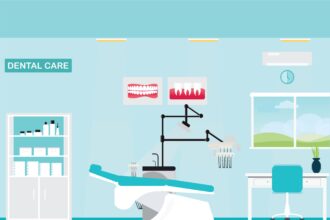[This is a follow-up post to Social Media: 3 Notable Quotes in the Social Health Space.]
Health care happens before you visit with your doctor, nurse practitioner or other health care provider. Health care is about you. You have the choice to be an empowered, engaged and proactive consumer, and you have the choice to take action to live a healthier life. It’s important to partner with your doctor and other health care providers to meet your health goals.
[This is a follow-up post to Social Media: 3 Notable Quotes in the Social Health Space.]
Health care happens before you visit with your doctor, nurse practitioner or other health care provider. Health care is about you. You have the choice to be an empowered, engaged and proactive consumer, and you have the choice to take action to live a healthier life. It’s important to partner with your doctor and other health care providers to meet your health goals.
A recent post included a proactive quote by Dr. Otis Brawley, chief medical officer for the American Cancer Society, and author of “How We Do Harm: A Doctor Breaks Ranks About Being Sick In America,” from an interview by The New York Times Well blogger and author, Tara Parker-Pope.
“…I blame patients, I blame doctors, I blame hospitals, I blame drug companies, I blame insurance companies. Our health care system is messed up because the system is designed to fail, and everybody is responsible for health care failing as it is now.” – Dr. Otis Brawley
Blaming isn’t the answer
Health care is fragmented, but placing blame isn’t the answer. I believe a contributing factor is the separation of health care silos. It’s easy to place blame, but that’s not going to help foster collaboration, and a collaborative culture is what is needed.
Deanna Attai, MD, breast surgeon, shares her thoughts regarding Dr. Brawley’s remarks:
“There is no question that we have problems with our healthcare system, from all sides. However instead of blaming and pointing fingers, to me this reinforces the need for all to be at the table and talk to each other. This applies in the care of the individual patient as well as on a larger scale in terms of setting policies. It is only with open dialogue and dismantling of the silos that we can expect to have true partnerships with one common goal – effective disease prevention and treatment.”
However, John La Puma, MD, ChefMD, disagrees. Sharing his thoughts in an email to me, and with his permission to publish, he writes:
“Health care silos are silos for a reason: they don’t recognize common interests, and tend to take positions which advance the causes of shareholders and stakeholders. I think it’s particularly difficult to blame patients for wanting more care: America, in the 20th century latter half has been about bigger, better, more. One solution is the community-based education one, the DIY one which includes Doing It Together as well. Young people already get this. They are already understanding more about interconnection, ecology, food source and water source, and the interrelationship between food, water, body, mind and spirit than I did when I was in college and medical school. I think that, along with technology advances will help to provide a system that is less based on blame and more on interconnection.”
Dr. La Puma’s points are well taken and I agree with him that technology will promote interconnection. We need to engage with patients and consumers and technology needs to be part of the conversation in and out of the doctor’s office. From telemedicine to health apps, to gaming and texting; all for a healthier life.
Your turn
What steps are needed to help fix health care? Please share your insightful thoughts in the comment section below.






